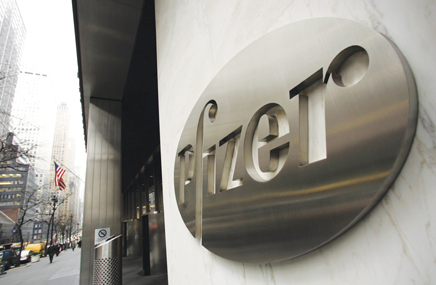Last week’s declaration that Pfizer was not under pressure to ink a major deal was not a sign that the firm wasn’t interested in one. The proof: Thursday’s announcement that the company will pay $17 billion to acquire Hospira Inc.
The move broadens Pfizer’s sterile injectables business and bolsters its position in the biosimilars market. Pfizer, which has five biosimilars in its pipeline, estimated in an investor presentation promoting the acquisition that patent lapses will put $100 billion in biologics sales up for grabs over the next five to 10 years.
Investors are unclear which of Hospira’s biologics will flow into Pfizer’s product book (it depends on the terms of Hospira’s previous collaboration deals), but there is overlap between the two companies’ offerings: Pfizer’s biosimilar of Johnson & Johnson’s Remicaid is in phase-III, for example, while Hospira already has one. Similarly, Pfizer’s biosimilar lineup includes a Phase-III lookalike of Roche’s Herceptin, and a UK court sided with Hospira to overturn two of Roche’s Herceptin patents last year.
Buying Hospira also shores up the portfolio of Pfizer’s Global Established Pharma business, grounding it in additional products should Pfizer end up splitting into three independent businesses in or after 2017.
Pfizer’s immediate financials included last week’s announcement that sales slipped 4% last year, to $49.6 billion. Generics hurt 2014’s numbers — sales of arthritis medication Celebrex, for example, fell 31% during the fourth quarter, when it battled generics that hit the market in December — and more fallout is expected, such as the company expectation that 2015 sales would hover in the $44.5 billion to $46.5 billion range.








